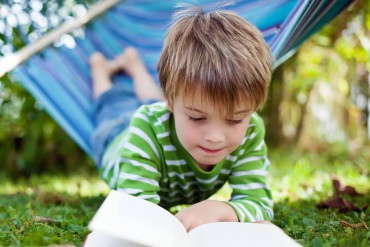 “Summer time and the living is easy” — but parents shouldn’t make it too easy for their children to forget everything they’ve learned up to vacation time.
“Summer time and the living is easy” — but parents shouldn’t make it too easy for their children to forget everything they’ve learned up to vacation time.
Schooling stops during the summer but our learning should not. Many children tend to regress in skills learned in school during the summer months. Children come back to school in the fall and must relearn and review the skills that they have forgotten during their vacation.
Darrel G. Chapman of the New York Institute for Child Development says, “A child who has visual-perceptual or coordination problems may actually regress in his school performance after the summer. Motor and coordination skills need continual reinforcement if a child has trouble with reading or handwriting, for example.”
Numerous studies by Gordem and Olmsted show the tremendous influence that parents can have on their child’s academic development.
Here are some of the things parents can do to prevent summer slip and help their children develop positive attitudes toward learning:
- Set aside a regular time to work with your child — before lunch, after lunch, 2 p.m., whenever “schooling” can be a daily affair, or 10 to 15 minutes per day.
- Make it a fun time by using educational games. Use your computer for an academic game.
- Concentrate on what needs work, like addition facts and subtraction facts. Make it fun by finding math activities during the day: how many crows are in the tree, ducks on the water, cars passing that you meet while driving, pancakes on a plate, etc.
- Encourage your child to read or listen to you read.
- Talk to your child about what you are doing and where you are going. This will help to increase the child’s vocabulary in addition to reading, writing and speaking ability.
- Make sure the goals you set are at the right level for your child. If the goals are too high, the program can backfire. Check with your child’s teacher for ideas.
Here are some activities for parents to do with their child this summer:
- Daily notes — Write short notes to your children. Your message can be a simple “I love you,” or, “Willow, it’s so nice to see your smile when I come home from work. Love, Mommy.” Encourage your child to respond. Get Dad to participate too.
- Jokes and riddles — Leave a joke or riddle in a prearranged place each day or on the computer. You can make up originals or copy some from a book of jokes and riddles that is suitable for your child. Or have an older child do trivia on the computer.
- Picture dictionary — You will need sheets of paper or a scrapbook, magazines, scissors and glue stick. Working on one alphabet letter at a time, cut out pictures of objects whose names begin with that sound, and paste them on the appropriate page. You can also have the child think of another word that begins with the same letter or a rhyming word.
- Sharing impressions — Summer is a time for new experiences. Children can be encouraged to express their impressions of these experiences by drawing pictures, writing or dictating stories, writing own story, keeping a daily diary etc.
On trips, keep a travel log where each member of the family can write impressions. If a camera is available or you can buy a cheap one, children can make a photo record or book. Once the prints are available, they can be selected and arranged in a book so that they tell a story. Captions, or better yet, sentences can be added.
- Involve children in writing — Menus, recipes and shopping lists. Have children write up menus for daily or special meals. Help them make shopping lists for items they’ll need for cooking a meal and following a recipe. Let them find these items in a store.
- Let your child give you the directions on how to drive home or to a baseball game.
Take the time to plan your summer. Go on picnic and just have fun. Keep the fun in learning.
Millie Lindell is a retired elementary school teacher and K-12 principal. She earned a doctorate in education administration and taught graduate classes in colleges and universities. She has been president of three different state reading associations including Washington and presented at local, state and international reading associations plus the World Congress of Reading in various places around the world. Her latest endeavor was authoring a book together with her grandchildren. "Cooking Around the World With Grandma" can be found at amazon.com. The proceeds of the book are going to the grandchildren's college fund.





















